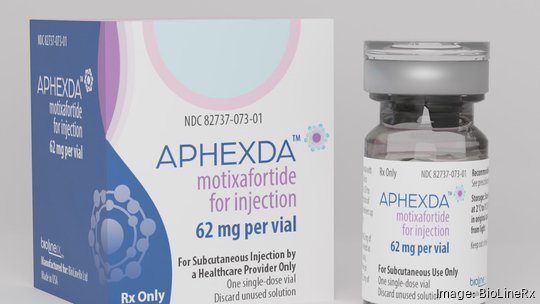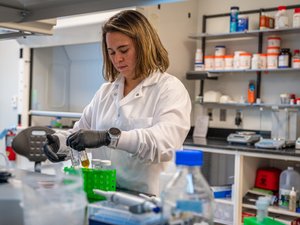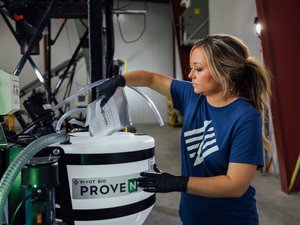
An Israeli company developing treatments for cancers and rare disease said Monday it has received approval for a new drug after completing clinical trials in partnership with Washington University.
Biopharmaceutical company BioLineRx Ltd. (Nasdaq: BLRX) said the U.S. Food and Drug Administration has granted approval for a treatment it has developed for multiple myeloma. The approval is for its drug Aphexda (motixafortide), to be used in combination with another drug, filgrastim, for treatment in patients with multiple myeloma. Aphexda, which is injected in patients, is the first drug for which BioLineRx has received FDA approval, the company said in a news release.
Multiple myeloma is a blood cancer that is estimated to have 35,000 diagnoses and cause 13,000 death in the U.S. in 2023, according to statistics from the American Cancer Society. BioLineRx said its treatment is designed to better mobilize stem cells as part of a stem cell treatment that is often used to treat multiple myeloma.
The FDA approval for Aphexda follows a phase 3 clinical trial that BioLineRx completed with Washington University as its clinical partner for the program. John DiPersio, a professor and director of the Center for Gene and Cellular Immunotherapy at Washington University School of Medicine, was the primary investigator for the clinical trial. DiPersio is a co-founder of St. Louis-based Wugen, which is developing cancer-fighting drug candidates.
BioLineRx said its “Genesis” clinical trial included 92 patients dosed with Aphexda and filgrastim and 42 patients who received a placebo and filgrastim. It said the clinical trial results found patients treated with Aphexda and filgrastim were able to “mobilize more than four times the amount of stem cells with a single dose over a 24-hour period” than the placebo group.
"Given the strong efficacy data shown in the Genesis trial, which included patients who are representative of the current multiple myeloma patient population, we believe Aphexda will play a critical role in addressing unmet needs and introduce a new treatment paradigm for this challenging cancer," said Philip Serlin, CEO of BioLineRx, in a statement. "The company is working relentlessly to make this important innovation in stem cell mobilization available to appropriate patients, their physicians and transplant teams."
BioLineRx said it plans for its drug to be ready for patients later this month.
BioLineRx reported a net loss of $25 million in 2022 and a deficit of $330 million as of Dec. 31, 2022. It said in its 2022 annual report it expects to continue operating at a loss as it seeks to bring its top drug candidates to market. The commercialization of Aphexda is anticipated to be the major driver of its revenue in the coming years, the company said. BioLineRx’s U.S. operations are based in Waltham, Massachusetts.
BioLineRx said in a recent regulatory filing it inked a clinical collaboration with Washington University in March to move forward with a phase 1 clinical trial for motixafortide for stem cell mobilization for gene therapies in sickle cell disease.











